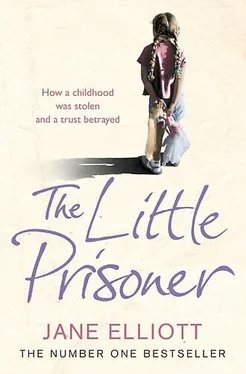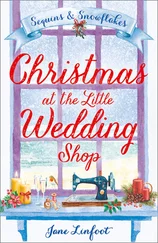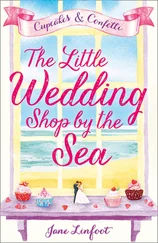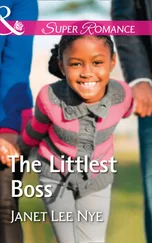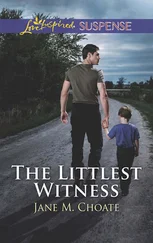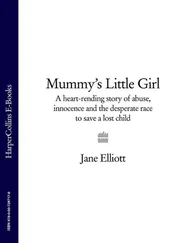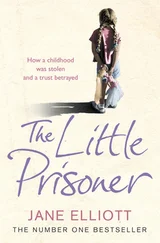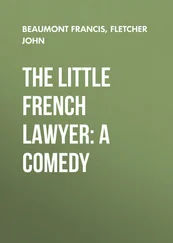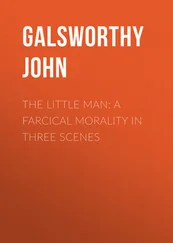‘Get me out of here,’ I hissed through gritted teeth, feeling his eyes boring into mine and his thoughts getting back inside my head. ‘Get me out, get me out.’
‘Calm down, for heaven’s sake,’ the lady said, irritated by such a show of emotion. ‘Come through here.’
She led me into a room off the court, which had a glass door. He followed us, but didn’t come in, standing outside the glass, just staring at me with no expression.
‘Get the police!’ I screamed. ‘Get the police!’
‘Don’t be silly, dear.’ She was losing patience now. ‘Who is it you’re worried about? Is it him?’ She gestured towards the immobile figure on the other side of the glass with the dead, staring eyes.
‘Get someone!’ I screamed and she realized there was no way she could calm me down. She walked towards the door. ‘Don’t leave me!’ I screamed, suddenly envisaging him and me in the room alone. The woman was panicking now, aware that she didn’t know how to handle the situation.
At that moment Marie and another police officer arrived. Finding me standing in the corner of the room, hiding my face against the wall like a child in trouble, they came to the rescue, furious with everyone and getting me to safety.
‘He’s going to kill me,’ I moaned as Marie put her arm round me. ‘I’m dead.’
‘No, he won’t, Jane,’ she soothed me. ‘He can’t do anything now. You’re doing fine. It’s nearly over.’
E arly childhood memories don’t always remain in the right order or come back the moment they’re called, preferring to remain stubbornly locked in secret compartments deep in the filing cabinets of my mind. Sometimes I can picture a scene clearly from as young as three or four, but I can’t remember why I was there or what happened next. Every now and then the lost memories will return unexpectedly and often it would have been better if they’d remained lost. I have a horrible feeling that there are still some compartments for which my subconscious has deliberately lost the key, fearing that I won’t be able to cope with what would come out, but which one day will allow themselves to be forced open like others before them. It is as if they wait until they know I will be strong enough to cope with whatever is revealed. I don’t look forward to seeing what’s inside them.
I can’t always piece together the order that things happened in either. I might be able to remember that I was a certain size at the time that some event occurred, but be unable to tell if I was four or six. I might be able to remember something that was a regular occurrence, but be unable to say whether it went on for a year or three years, whether it was every week or every month. I suppose it doesn’t matter very much, but this confusion makes it difficult to give a truly factual account of the early years of my life, since anyone else who might be able to remember those times will probably have reasons not to tell the truth, or at least to adjust it to make their role in it more bearable.
I do remember being in care with my little brother Jimmy. I must have been about three when we were taken away from home and he would have been about eighteen months younger, so still little more than a baby. I loved Jimmy more than anything in the world. My dad tells me that when he used to come and take us out of the children’s home for a pub lunch or some such outing, I would act like a little mother to Jimmy, feeding him and fussing over him. I don’t recall the outings, but I do recall how much I adored Jimmy.
The main things I remember about the children’s home were the brown vitamin tablets they used to dispense to us each morning in little purple cups, and being made to eat Brussels sprouts and hating every damp mouthful as they gradually grew colder and more inedible on my plate.
There was one woman working there who used to single me out from the evening line-up, after we had all been given our glasses of milk, and take me somewhere private, putting her finger to her lips as if we had a secret from the rest of the world. Then she would sit me down and comb my long hair, spending ages curling it and making me feel beautiful and special for a few minutes each day. (My hair was so dark and fine that people were always asking me if I was Indian or Pakistani.) When she’d finished her work the woman would give me a hand mirror to hold up in front of me so I could see the back of my head in the mirror on the wall and admire her handiwork. It seemed like a magic mirror to me.
Most of the information I picked up later about those early years and why we were taken away from home came to me because Mum was always happy to talk about me to other people as if I wasn’t there. I’d be sitting quietly in the corner of the room, waiting for an instruction as to my next duty, while she would be holding forth to some neighbour or other. Every so often she would remember I was there and remind me, ‘Don’t you ever let him know I told you that.’ My stepfather didn’t like anyone to talk about the past.
When I was in my mid-twenties I tracked Dad down and he’s told me a few things, but I don’t like to keep asking him questions. It seems that Dad had a bit of a drinking problem, which Mum made worse by playing around with other blokes and generally giving him a hard time. He had already left us before we were taken into care and Mum had started going out with Richard, or ‘Silly Git’, as I prefer to think of him. He might even have been living with us by then, although he would have been very young, no more than sixteen or seventeen. He’s only fourteen years older than me.
Jimmy and I were sent to a couple of different foster homes, one of which I think must have been quite nice, since I can’t remember much about it. The second one wasn’t so good. They seemed like evil people to me, but perhaps they were just very strict in a way I wasn’t used to. We were never allowed to whisper to each other, or speak unless we were spoken to, and when they caught me whispering to Jimmy one time they stuck a piece of tape over my mouth which had been holding together a pair of newly bought socks. I had to sit at the top of the stairs with the tape over my mouth all night while everyone else in the house went to bed.
Even though I wasn’t having a good time in the foster family, I still never wanted to go back home, but I wouldn’t have been able to explain to anyone why not.
‘I’m really looking forward to coming home,’ I would tell Mum when I saw her, but I absolutely wasn’t.
When we went back home for visits there was an atmosphere in the house that made me frightened, although nothing bad actually happened in those few hours. I would sit very quietly, not wanting to make the new man of the house angry, but Jimmy had no such inhibitions and from the moment we were dropped off he would scream with what sounded like terror. I could tell it made Richard angry and that frightened me even more, but nothing I could do would calm Jimmy down until the social workers came to take us back. We would just sit together on the sofa for the whole visit with him screaming and me trying to comfort him. Richard’s anger and our mother’s desperation would swell to what felt like dangerous proportions as they waited for the ordeal of the visit to be over.
Jimmy had a large scar right around his forehead, which has stayed with him into adulthood. I was always told that he got it from falling against the coffee table before we were taken into care. I accepted the story at the time, but thinking back now, it’s an awfully big scar to get from bumping into a table. He was only tiny, so it wasn’t as if he had far to fall, or much weight behind him. I wonder now if something more serious happened to him and that was why we were taken into care and why he was always so terrified to go back home. I don’t suppose I’ll ever know now because Jimmy was too little to remember.
Читать дальше
Конец ознакомительного отрывка
Купить книгу
